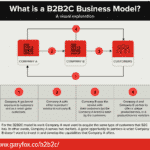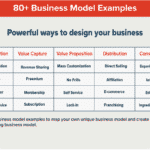As of 12th June, Facebook Business is worth 651 billion dollars. That is based on the total value of the shares and their price – the market capitalization.
You must be wondering why is Facebook worth that much? I’ll take you through the Facebook business model, how to think about Facebook’s business model and much more.
Quick Facts About Facebook Business
| Company name: | Facebook Inc |
| Founders: | Mark Zuckerberg, Eduardo Saverin, Andrew McCollum, Dustin Moskovitz and Chris Hughes. |
| Annual revenue: | 2019: $70.7 Billion |
| Profit | Net Income: | 2019: $18.49 Billion |
| Year founded: | 2004 |
| Company CEO: | Mark Zuckerberg |
| Headquarters: | Menio Park, California, USA |
| Link: | |
| Number of employees: | (Dec, 2019) 44,942 |
| Type of business: | Public |
| Ticker symbol: | FB |
How much is Facebook worth in 2020?
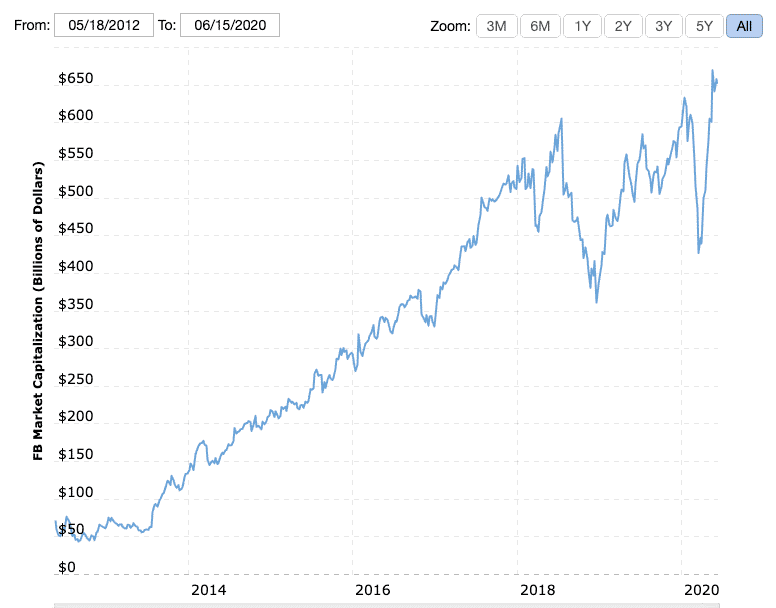
The reason Facebook is valued so much by investors is that it has a global reach and lots of people using it every day. Facebook earns the majority of its revenue from selling advertising space/opportunities to businesses – large global brands as well as much smaller businesses.
Note: Did you know that the value of the name, the brand Facebook is worth a cool $88.9 Billion.
What percentage of Facebook does Mark Zuckerberg own?
In total, Mark Zuckerberg owns approximately 20% of Facebook. That’s a much lower percentage than when he started Facebook, but still a gigantic amount of wealth.
His worth changes based on how the shares of the Facebook fluctuate, but a rough estimate is that Zuckerberg is worth $61 billion.
How Much Does Facebook Make In a Year?
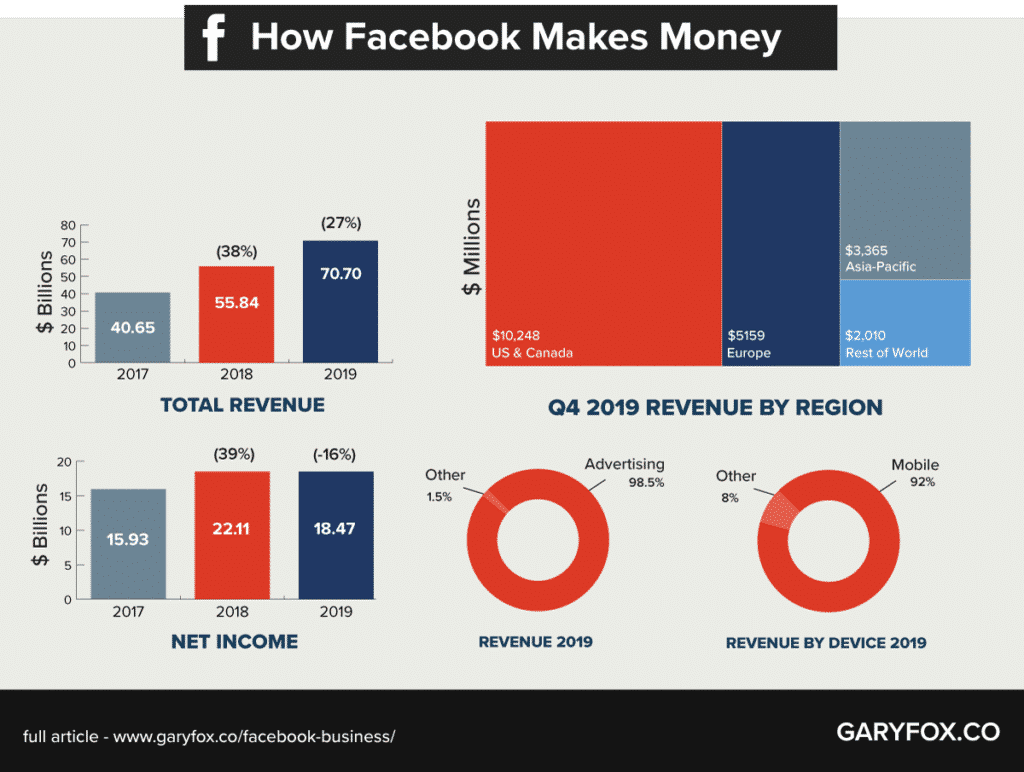
Facebooks income varies based on its investments, level of competition and how much it can charge on average for ad space.
How Does Facebook Generate Money?
The vast majority of Facebook business revenue comes from advertising space. Like Google’s business model, Facebook uses an algorithm that charges more for ads that are competitive.
As an example, advertising for inflatable swimming pools in summer is a lot more expensive in July than in the middle of winter, simply because lots of companies are bidding for the same space.
There are three places you can advertise on Facebook:
- Facebook marketplace
I count Facebook marketplace as a separate ‘space’ because of the way customer behaviours differ from the other two areas.
What Is the Facebook Business Model?
The Facebook business model is based on a hidden revenue business model pattern 1Business Model Navigator book.
A hidden revenue business model is based on advertising being the dominant form of revenue generation. Digital technologies have enabled new digital models that have disrupted industries and given birth to new forms of companies – like Facebook.
Over 98% of Facebook’s revenue comes from advertising.
A further example of a hidden business model can be seen with online newspapers. Previously their newspapers were printed and physically distributed and sold on stands in the streets or in newspaper shops. However, digitalization changed all that.
Many newspapers went under and those that have survived have either turned to a subscription business model or used a hidden revenue model.
The Facebook Busines Model Value Map
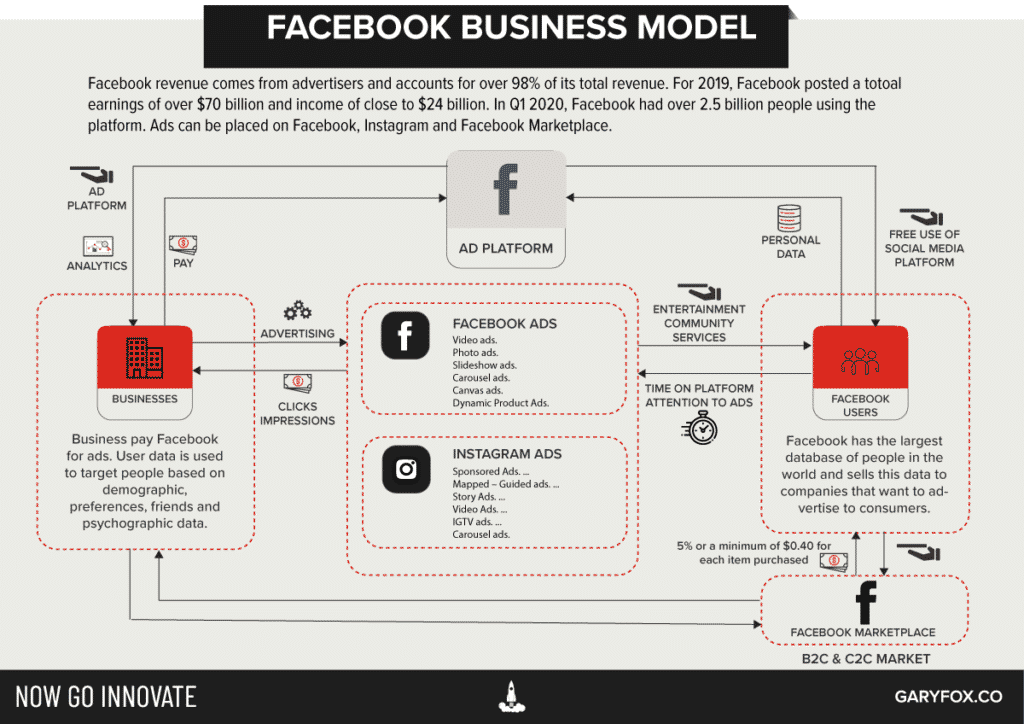
The early business model of Facebook was based on college students being able to connect and see who was doing what and who knew who. It went viral and quickly spread from the US to Universities in UK and then in Europe.
The Facebook business model benefited from positive network effects – the more people that joined the more value it offered because each person then had more people to connect with.
In other words, it relied on people knowing people to spread and build the network.
Now Facebook has the largest global network of people in the world. You can find out more about Facebook statistics on the main post on this post – social media statistics.
The Facebook business model offers customers ‘free’ use of the platform. The value proposition for customers is built on the value customers get from being able to share photos, connect with friends, play games…
Facebook now has a huge array of value propositions as it has expanded its platform business model.
| Products And Services: | Facebook, Instagram, Whatsapp, Oculus, Facebook Business, Facebook Games, Facebook Live, Facebook Marketplace, Facebook Messenger, Facebook Portal |
Facebook Business Model Canvas
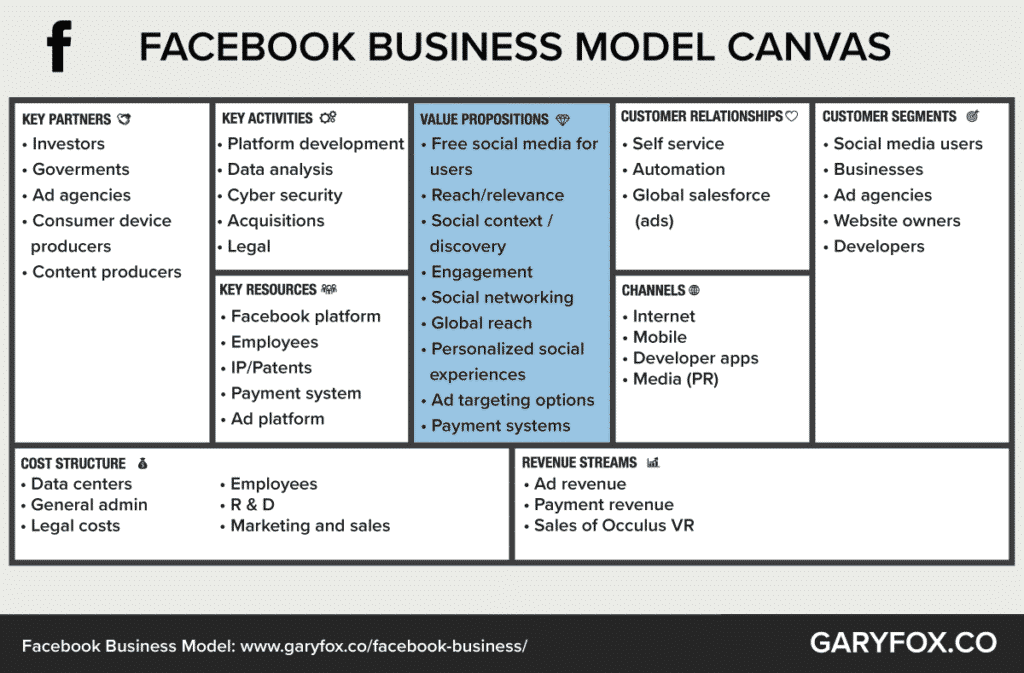
Facebook Business Model: Customer Segments
- A global base of users – 2.6 billion users.
- Businesses who advertise and market to ‘customers’ on Facebook – An estimated 90 million business use Facebook.
- Agencies. Larger brands and businesses often outsource their advertising to agencies. These deal with sizeable budgets, have large teams and use enterprise-level platforms for advertising.
- Web developers – Facebook integrates with websites so users can be tracked. As an example, if you click on an ad that then takes you to a landing page that will be tracked. These integrations help marketers optimise ads and conversions.
- Developers – Many developers build apps using Facebook. Some of these may be for Facebook games others site on other apps and provide single sign-on functions and social sharing capabilities.
Facebook Business Model: Value Propositions
- For customers (users)
- Free social media for users
- Social context discovery
- Entertainment
- Social networking
- Personalized social experiences
- For businesses and agencies
- Global reach
- Ad targeting options
- Payment systems
- Ad tracking and metrics
- A/B testing and other ad optimizations
- Rich media – videos, interactions
- Community platform – Facebook page and groups.
Facebook Business Model: Channels
Have you seen the ads on TV for the Facebook portal?
- Communication Channels
- Internet/website
- Mobile App
- Developer Apps
- Media (PR)
- TV
- Distribution Channels
- Facebook Website
- Facebook Platform
- Apps
- Retail – e.g. John Lewis.
Facebook Business Model: Customer Relationships
It isn’t possible to have an intimate customer relationship with billions of people. The majority of ‘users’ can access a range of self-service knowledge bases. Additionally, Facebook has lots of social media evangelists who provide resources on how to use the platform.
Most of the Facebook business resources are centred on helping business spend money on advertising – that’s at the heart of its business. The level of support depends on the budget and type of businesses. Typically large global agencies have specific account managers related to a brand and account budget.
